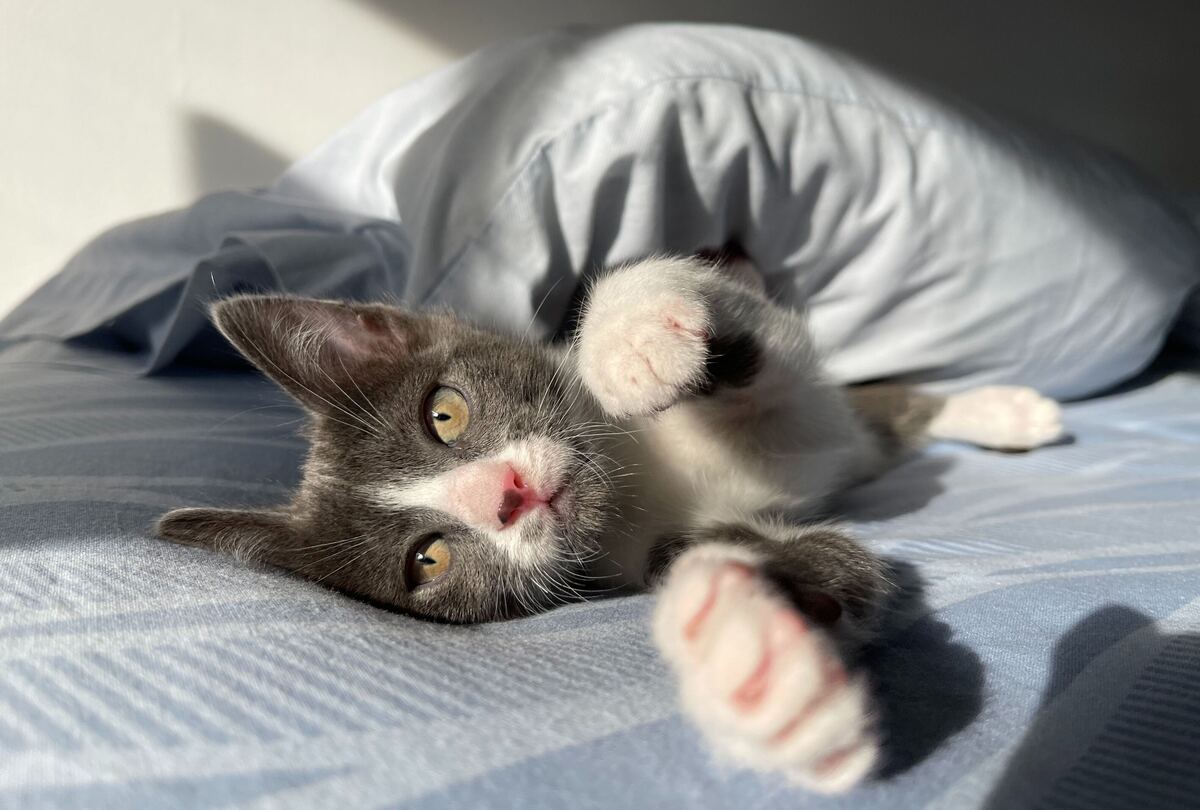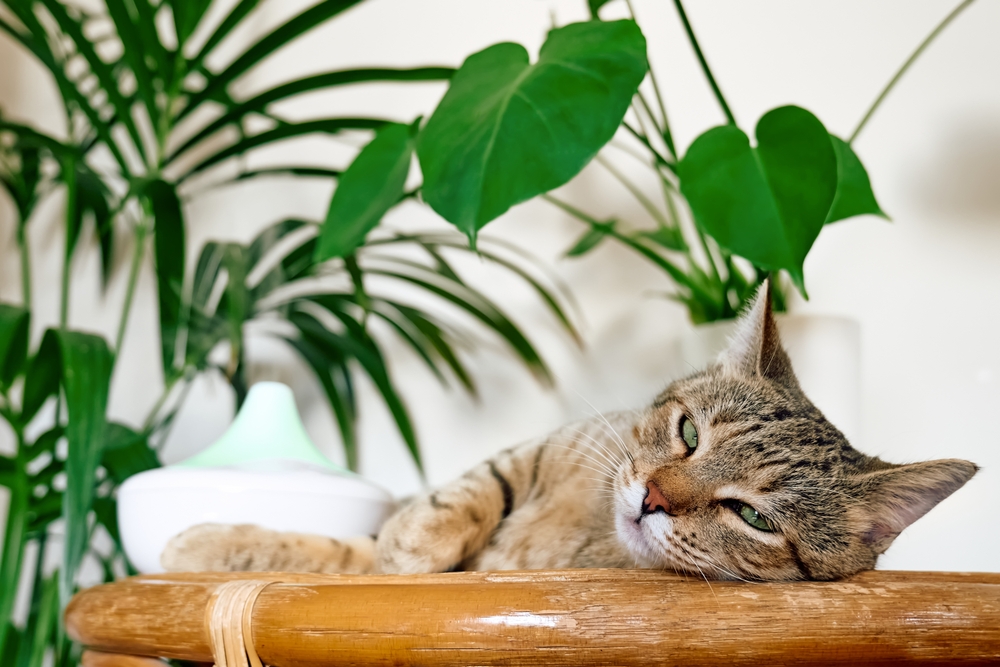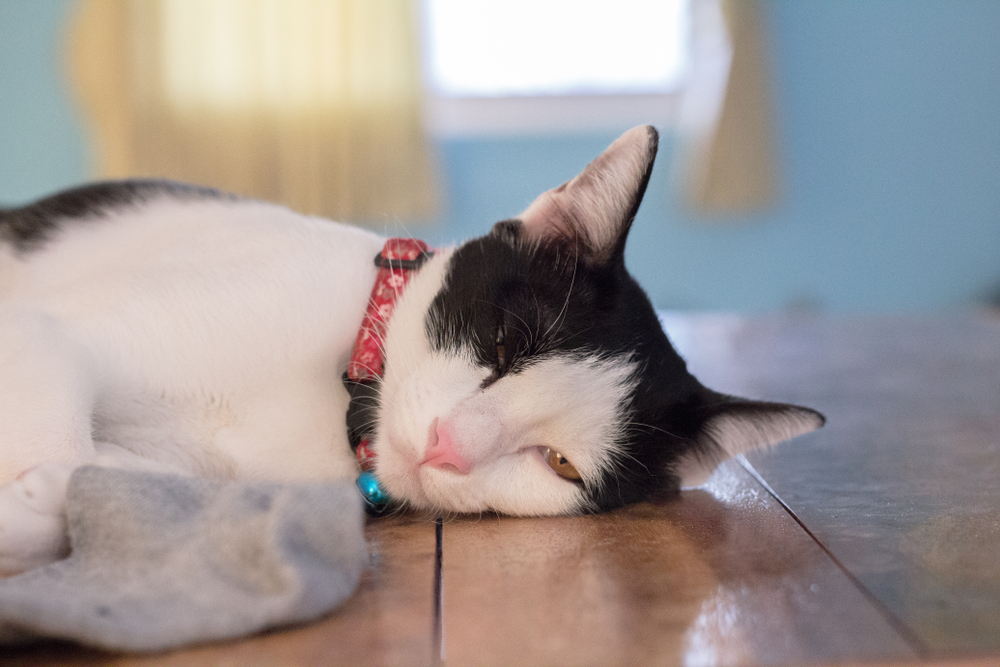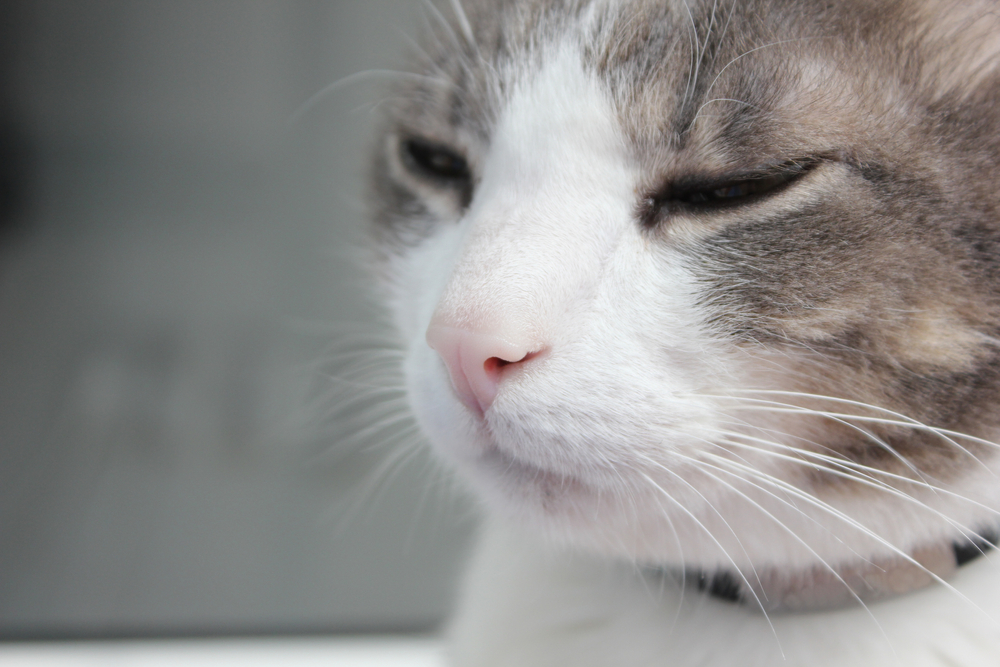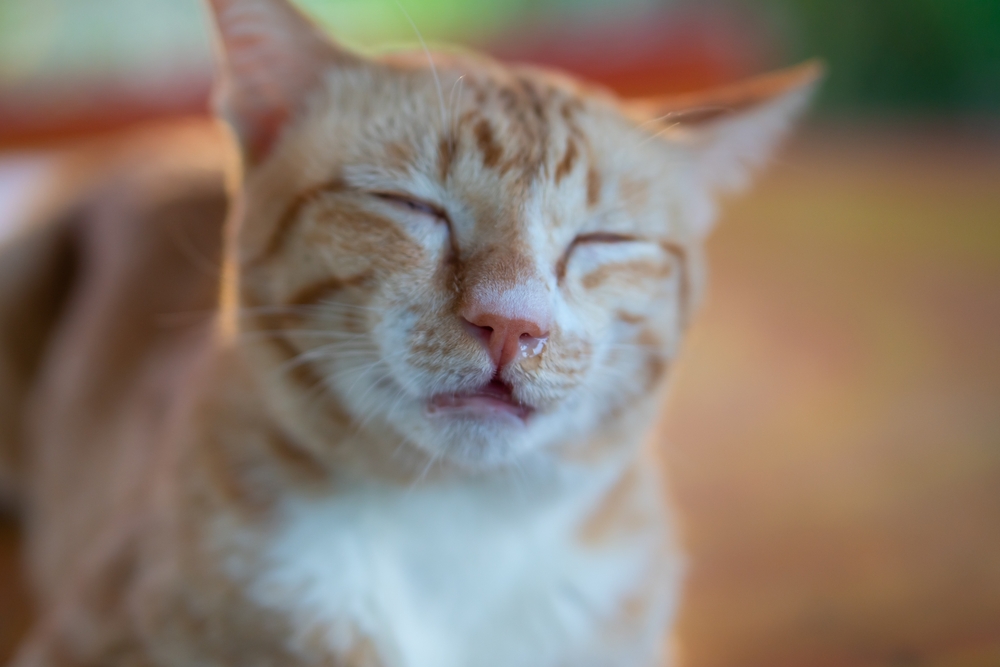📖 Table of Content:
“My cat sounds congested but no discharge comes out when I try to blow her nose. What does that mean? What do I do?”
Now, pet parents almost always know when there’s something wrong with their pets. Whether they’re breathing a certain way, napping at the wrong time of the day, or meowing the day away, they’re quick to contact the vet and ensure everything’s up to par. More often than not, they’re right.
As a concerned pet parent, you may be about to freak out over a kitten’s breathing sounds. When you notice that your precious pet struggles to take a deep breath without producing congested sounds, chances are you’re on your way to the vet’s office. We salute that decision, but we do need to underline one thing.
Not everything’s a cause for concern when we’re referring to your cat’s congested breathing. More often than not, cats that sound congested are suffering from some sort of an allergic reaction, a common cold, or an upper respiratory infection – all of which are treatable.
Moreover, most cats that sound congested but aren’t actually snotty have something stuck in their noses (which happens to be treatable, too). We’re aware that the probable explanations for why your cat sounds congested seem scary, but you’ve got nothing to worry about.
We’ve rounded them up for you down below!
What’s the reason why a cat sounds congested but no discharge comes out of her nose?
1. An allergic reaction
Who would’ve thought your four-legged friend might be allergic to something? When we mention cats and allergies together, chances are we’re referring to the fact that pet parents (and unsuspecting friends, family members, and neighbors) are often allergic to cats.
But cats can be allergic to things, too, and a stuffy, snotty nose can be a symptom of an allergic reaction.
Additional symptoms of an allergic reaction are coughing, sniffing, shortness of breath, watery eyes, facial pain (pawing at the eyes or the nose), and congestion. A discharge of sorts can occur, but there are times when a cat sounds congested but no discharge occurs.
Contact your vet the moment you notice any of these symptoms.
2. A common cold
A common cold is a, well, common reason for a cat to get congested and that’s why your fluffy friend might be making you question everything you’ve ever known about cats. When you get a common cold, you probably get grumpy, groggy, and stuffy, and you struggle to eat and sleep due to your symptoms.
Well, that’s sort of what happens to cats, too. Cats almost always experience symptoms such as sneezing, sniffles, watery eyes, runny nose, and a mild fever.
Contrary to popular belief, though, cats don’t get a runny nose every time they’re under the weather. Sometimes they’re plagued by weakness, difficulty breathing, and breathing differently than before – that explains the congested sounds.
3. Asthma
We can’t forget about asthma, right?
When you notice your precious purrincess coughing, gasping for air, and breathing in a way that makes it difficult to ignore, you might have an asthmatic cat at hand. Asthmatic cats oftentimes breathe through their mouth in an attempt to get more air into their lungs.
According to veterinarians, that’s what triggers them to get asthma attacks and appear congested at all times. Air humidifiers, litter made specifically for asthmatic cats, and a dust-free home can make a world of difference for your feline friend. And a mandatory vet visit, too – needless to say.
4. Feline rhinitis
Pet parents that have never heard of feline rhinitis, unite!
Feline rhinitis refers to the infection of the nasal cavity, sinuses, and upper respiratory system in cats. Furthermore, feline rhinitis can cause symptoms such as sneezing, wheezing, coughing, runny eyes and nose, congestion, and breathing through the mouth.
Finally, feline rhinitis is usually caused by a virus or bacteria such as Bordetella bronchiseptica, Mycoplasma pneumoniae, Mycoplasma hominis, or Mycoplasma genitalium.
With these hard-to-remember terms out of the way, know that you can treat feline rhinitis with over-the-counter medication, fluid flushes, humidifiers, and lots of love. Whatever you do, don’t shy away from taking your cat to the vet even though she’s congested without the accompanying discharge.
5. A tracheal foreign body
When your cat sounds congested but no discharge comes out of her nose, you might want to check whether there’s something stuck up there. We’re not kidding here. We suggest checking her nose, doing a quick mouth sweep, and performing a cat Heimlich maneuver when necessary.
Contact your vet right away and take your cat to the emergency clinic when you’re unable to remove the thing on your own. Cats are curious creatures and they’re known to explore around the apartment, sniff through piles of clothes and accessories, and even search through the trash.
Cats sometimes even choke on rogue hairballs. Congested breathing, retching, gagging, and coughing are some of the telltale signs that your cat might be choking on something.
6. An upper respiratory infection (URI)
We do need to mention that URIs come with discharge, but there are exceptions that might explain why your cat sounds congested but no discharge comes out when you pinch or blow her nose.
Where do we even start? URIs or upper respiratory infections are caused by a range of viruses and bacteria that affect the throat, nose, and sinuses. When your cat contracts a URI, her upper airways get irritated and inflamed, and her mucus membranes start producing too much mucus.
Because her passages are now obstructed, she might start breathing with difficulty or even breathing with her mouth rather than her nose. But that’s not a cause for concern because your vet can treat your cat’s URI with over-the-counter medication and a humidifier.
7. A bacterial infection
Cats are fluffy fiends that adore sniffing smelly feet, licking dusty, dirty floors, and scratching suspicious furniture that may or may not have been properly cleaned for months. Contrary to what your cat might believe, she’s susceptible to a bunch of bacterial infections.
Bacteria can cause severe illnesses, infections, and complications when left untreated. Because of that, you need to pay attention to your cat’s symptoms and contact your vet the moment you start suspecting she might have contracted a bacterial infection.
Sure, some of the most common symptoms are red and runny eyes, a runny nose, congestion, wounds, abscesses, vomiting, and a fever. But there are times when a cat experiences one or two of the symptoms rather than all of them.
8. A viral infection
Cats can get viral infections, too! Viral infections are different from bacterial ones because they’re (obviously) caused by a virus rather than bacteria. With a viral infection, you can count on symptoms such as fever, coughing, sneezing, runny nose, and watery eyes.
We do need to underline that the symptoms depend on the specific virus that’s causing your cat to get sick. Feline Immunodeficiency Virus (FIV), Feline Herpes (FVR), Feline Leukemia (FeLV), Feline Distemper (FPV), and Feline Calicivirus (FCV) are the most common viral infections that can cause your cat to sound congested.
We understand that you might be terrified to even think of the possibility of your cat suffering from one of these viral infections, but we urge you to contact your vet right away.
9. A fungal infection
Cats are no strangers to backyard shenanigans, right? Whether they’re exploring what’s under the grass, rolling on the ground, or napping on flower pots, they’re at risk of contracting fungal infections. Why’s that? Well, fungi originate in soil, where they pretty much lie and wait for cats to inhale or ingest them.
Fungi aren’t fun, and they’re known to cause serious complications to cats, too. Congestion, poor appetite, fever, runny eyes, runny nose, seizures, skin lesions, and weight loss are some of the common symptoms of a fungal infection in cats. Contact your vet the moment you notice these symptoms.
10. A brachycephalic obstructive airway syndrome (BOAS)
When breathing, happy and healthy cats don’t produce congested sounds, there’s no question about that. Cats produce congested sounds when there’s something wrong with them. Or, when they’re flat-faced cats with physical abnormalities that prevent them from breathing normally.
Flat-faced cat breeds possess abnormalities known as brachycephalic obstructive airway syndrome (BOAS). With a smooshed-faced feline, you can expect strange sounds and mouth breathing at all times.
11. A chronic obstructive pulmonary disease (COPD)
Now that you know you can expect congested sounds from a flat-faced feline, you might be wondering whether senior ones suffer from similar breathing problems, too. Needless to say, senior cats suffer from a myriad of conditions, from hyperthyroidism and hypertension to diabetes and cancer.
Chronic obstructive pulmonary disease (COPD) seems to affect senior cats more than kittens and that’s why you shouldn’t overlook the possibility of your cat suffering from COPD. Schedule an appointment with your vet and ease your worries right away.
12. Fluid build-up
Fluid buildup or pulmonary edema can cause cats to sound congested when breathing, too. What happens is that fluids build up around your cat’s lungs and prevent them from expanding.
With that much fluid around her lungs, your cat might struggle to breathe and get enough oxygen to fuel her body. Fluid buildup is considered a medical emergency and should be treated ASAP.
